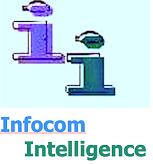According to Andy Rubin of Google, there are 850,000 activations of Android devices, whether mobile or tablets a day. Rubin explains the motivations behind the acquisition of Motorola: "The advantage of having a firm that makes it able to dial to where we think the future will, but it won't make anything exclusive that it may damage the rest... We believe in an open ecosystem."
As it happens, Motorola released the Android 3.0 Xoom tablet. Samsung offers version 4.0, which unifies tablets and phones. "Without balance you can not make an ecosystem. " Within this logic fits the fact that many manufacturers such as Motorola's own Motoblur, Samsung or HTC Sense Hub, provide their own equipment and adaptable interface. "I know it's controversial, some may prefer the pure system, as it comes, it also helps handled who are not familiar or want to customize. Anything to give consumers more choices seems right. "
Rubin has revealed that in 2011 12 million tablets with Google software were sold, excluding the Amazon Kindle Fire. They just doubled those sold in 2010.
First came Google Music, Google Books and later, YouTube was acquired... Just after they released Android. Now they need to combine both worlds ... "We will add more content, but for now we can not advertise. We have to improve to do business. "
Android still has some issues to solve: such as hiw you can't have good Facebook application in tablets? All board members have agreed that what is seen in the 10 inch version does not seem very consistent with the social network. "We will try to mark a path as the application of Gmail or YouTube, which detects the device and adapts, but it is a question for us, but for Facebook it does offer a version for iPhone and one for iPad" . A few hours later the head of Facebook's Technology has announced its commitment to a web-based, open mobile HTML5.
Rubin says high-end phones today will become the minimum within a window of 18 months. "The important thing is to be brave enough to set trends." When he arrived at Google, the firms invested in Android because, he says, Google knew that their business model, with free services and advertising revenue, was the only one who could succeed with their vision completely. It is unfair to think that all innovation comes from a company. The evolution is collective. "
Neither ruled out at some point a launch of a Google e-reader, but it does not seem too logical: "There is already an application in our Kindle Store."
The future, according to Rubin, is the era postPC. Once you have set in tablets and phones the next frontier is in the home, when you come home and leave the keys, mobile and work. "I feel that if we put Android at home, this will not work. We must be imaginative to join more traveling companions. If not, others will come up with another ecosystem. It is an industry that we want to lead by giving intelligence to home," he argues. It fits with the line of home automation smart labels, just a day before Sony had introduced its new handsets.
Source: El Pais
Louis Rhéaume
Infocom Intelligence
louis@infocomintelligence.com
Twitter: @InfocomAnalysis

A blog on the convergence of info-communications industries: communications, computing, electronics, entertainment, publications and education. Strategic, technological and financial analysis. English and French blog. Cette chronique traite de l’évolution des industries de l’information et des communications et couvre des aspects stratégiques, technologiques et financiers, comme l’économie du savoir et de l’innovation. L’auteur est Associé principal de Infocom Intelligence.
Labels
finance
(58)
strategy
(39)
innovation
(36)
technology
(29)
Internet
(25)
mobile internet
(25)
stratégie
(21)
applications
(20)
business models
(19)
mobile technologies
(17)
venture capital
(17)
Apple
(13)
télécommunications
(13)
consumer internet
(12)
media
(12)
telecommunications
(12)
mergers and acquisitions
(11)
video games
(11)
wireless
(11)
technologie
(10)
Android
(9)
technologies de l'information et des communications
(9)
téléphones intelligents
(5)
Monday, March 05, 2012
Android has a collective evolution
Subscribe to:
Post Comments (Atom)
No comments:
Post a Comment